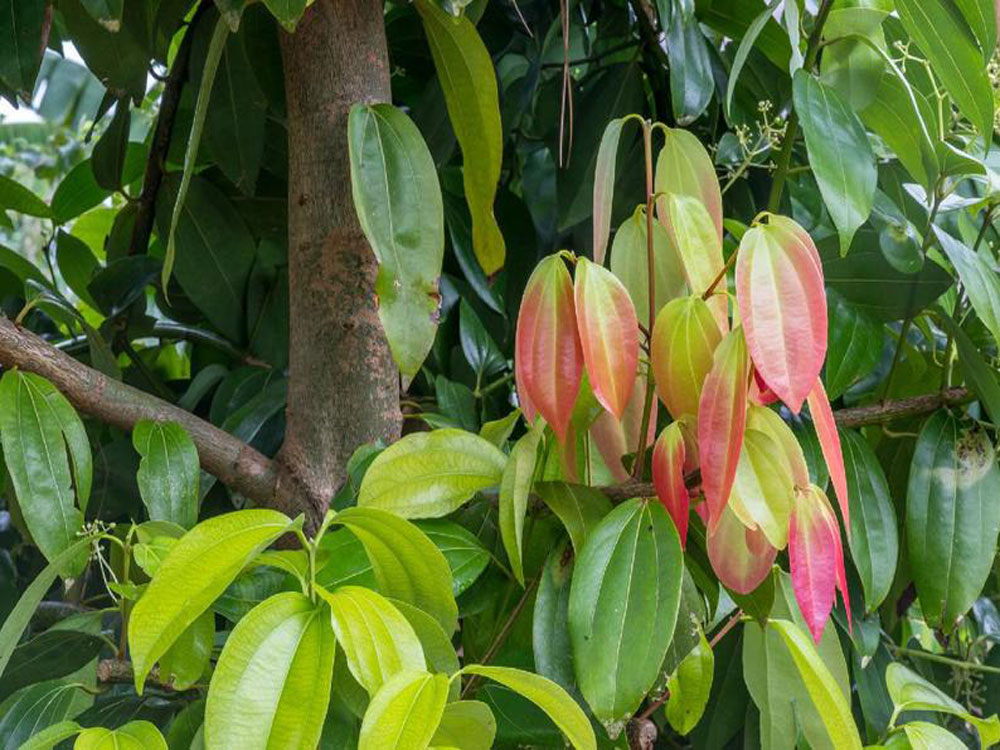Dalchini - Cinnamon Tree

Cinnamomum zeylanicum
Summary
Scientific Classification
Kingdom: Plantae
Division: Magnoliophyta
Class: Magnolipsida
Order: Laurales
Family: Lauraceae
Genus: Cinnamomum
Species: C.zeylanicum
Scientific Name: Cinnamomum zeylanicum Garcin ex Blume.
Common names
English : Cinnamon, Ceylon Cinnamon Tree.
Hindi: Dalchini.
Kannada: Dalachinni, chakke.
Marathi: daarachini.
Discription
- Habit and Habitat: Cinnamomum zeylanicum is an evergreen Tree growing to 10 m (32ft) by 10 m (32ft) at a slow rate. Cinnamomum zeylanicum. It is an evergreen tree, attaining the height of about 6-8 meter with thick, smooth, reddish brown bark.Cinnamon is found widely in Sri Lanka but grows in Malabar, Cochin-China, Sumatra and in Eastern Islands too.
- Distribution: North East India, Central India, Southern India, Western India; Sri Lanka, Burma.
- Morphology:
Leaf: : Opposite or sub - opposite leaves are ovate or ovate-Lanceolate, hard and coriaceous, glabrous and shining above, slightly pale beneath with 3-5 main nerves. 1/2 - 1-inch petiole flattened above.
Inflorescence: Many minute flowers in axillary or sub-terminal cymes or panicles.
Flowers: flowers small, 3 mm in diameter, with foetid smell, pale yellow, subtended by small ovate hairy bract; perianth 8 mm long, silky hairy, with short campanulate tube and 6 persistent tepals about 3 mm long.
Androecium: fertile stamens 9, in 3 whorls, with 2 small glands at the base of the stamens of the 3rd whorl; a fourth innermost whorl consists of 3 staminodes; filaments hairy, stout; anthers 4- or 2-celled.
Gynoecium: ovary superior, 1-celled, with a single ovule, style short.
Fruit: Fruit is ovate or oblong, about 1.5 - 2 cm long, minutely apiculate, dry or slightly fleshy and dark purple in colour with single seed and persistent perianth.
Seeds: Single seed.
Flowering and Fruiting time: December-July. - Propagation: By seed or vegetatively propagated.
- Importance:
a. Cinnamon drug is used in diarrhoea, nausea, and vomiting.
b. It is commonly used as a condiment.
c. Medicinal oil extracted from fruit, root, bark yield excellent camphor. - Location: Botanical Garden, Ranade-Gotage Building.
 Trees of GSS Project supported by Makerspace Belgaum Website concept and designe by
Trees of GSS Project supported by Makerspace Belgaum Website concept and designe by